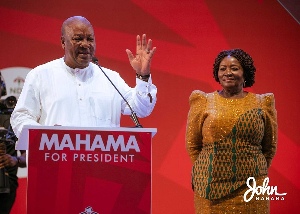As mobile phone subscribers continue to be inundated with unsolicited text messages and calls, telecom operators are seemingly shifting responsibility for curbing the nuisance to subscribers, telling the B&FT that consumers who are inconvenienced can request to be excluded.
From text messages advertising user competitions, products and services, upcoming events and job vacancies, to calls inviting subscribers to follow a star performer or sign on to a new service, mobile users are subjected each day to a deluge of marketing propositions and gimmicks either from their operator or a licenced third party.
“Customers can request to be excluded from promotional messages,” said MTN Ghana, the biggest operator by number of subscribers, in response to a question about how mobile users can be spared the bother of unsolicited SMSes. “Those who do are placed on our ‘Do Not Disturb’ list, and are not sent any such messages going forward.”
Responding to the same question, Airtel Ghana, whose 3.3 million customers make its network the third-largest in the industry, said though it limits the number of SMSs sent within a day to each of its subscribers, those who find them bothersome can opt-out of receiving them.
“Airtel has a policy that doesn’t allow for a customer to receive more than two messages daily, and no messages are sent out on Sundays. However, a customer who has subscribed to a content service may receive more than two messages daily depending on the terms of service and number of services subscribed to.
“However, customers who do not want to receive any promotional SMSes can contact any of our customer-care points or shops to be excluded from receiving promotional SMSes and calls,” the operator said.
But complaints are rife from consumers over the inconvenience and nuisance caused by these unwelcome offers. Kofi Kapito, head of the Consumer Protection Agency (CPA), criticised operators for expecting subscribers to ask them to stop sending promotional messages when they have not requested them in the first place.
“Elsewhere, what pertains is the ‘opt-in’ process whereby subscribers will choose whether or not they want those messages. But the current process where the telcos expect subscribers to ‘opt-out’ is illegal,” he said.
The involvement of third-party mobile-content providers, who the operators allow to use their networks to transmit messages to customers, has also raised concerns about subscribers’ privacy and the handling of their personal records.
“Customers don’t have any business with third-party or mobile-content providers for them to be sending them messages. Who even mandated the telcos to give subscriber information to third parties in the first place?” said Mr. Kapito.
The companies, however, insist that subscribers’ data are protected, and third parties are limited in their access to customer information.
“We ensure that content providers do not have direct access to customer numbers to send them unsolicited messages. Any message meant to advertise a service to customers must be passed on to MTN,” the operator said.
“Sometimes, people circumvent this process and send messages by serialising numbers. The services of such content providers are suspended in extreme cases,” MTN added.
According to Airtel, content providers are only provided with a customer’s SIM number after he/she has subscribed to a service, and the messages continue to be sent until the customer unsubscribes.
“Content providers are not allowed to automatically subscribe customers to services, and failure to adhere to this will mean a loss of a percentage of their revenues,” the network -- which said its business with content providers represents an important revenue stream -- Airtel told B&FT, adding that it has had to cancel a contract with a third party due to non-compliance with its policies.
For MTN, a refund or compensation to the subscriber may be ordered if agreed policies are breached. The operator said services on its 1733 and 1525 short codes were suspended because of customer complaints.
The company added, however that allowing third-party content providers to use its network is an important part of its drive to boost local content in its business. “These providers employ many Ghanaians who contribute positively to the local economy. It is important that we support and help this Ghanaian-dominated industry grow as we work on the feedback we receive.”
Business News of Thursday, 25 July 2013
Source: B&FT













